Petr Jasek Imprisoned with ISIS in Sudan
Sudan
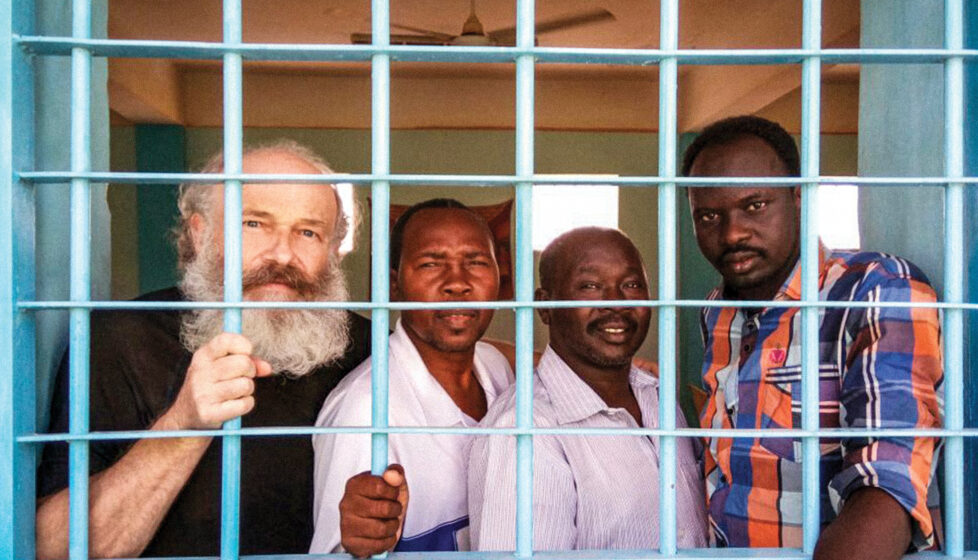
When the airport security officer tapped me (Petr) on the shoulder and motioned for me to follow him, I didn’t think much of it. It was Dec. 10, 2015, and I was heading home after spending four days in Sudan meeting with Christians and evaluating how VOM could help the church there. With my boarding pass in hand, I assumed I was merely being given an extra security screening at Khartoum airport.
Everything seemed routine until the officer spread several photographs before me on a table. I stared in shock at photos taken of me outside my hotel and other photos of me at a restaurant where I had shared a meal with a Sudanese pastor. Clearly, I had been under surveillance by Sudanese police ever since entering the country.
I looked nervously at my watch. My plane was about to take off, and I wasn’t going to be on it. Instead, I was being falsely charged with multiple crimes, including espionage and entering Sudan illegally.

Prepared for Suffering
When I was a teenager, my father handed me a book one day and said simply, “You should read this.” And that was how I got to know Richard Wurmbrand.
The book, Pastor Wurmbrand’s In God’s Underground, had been smuggled into our native Czechoslovakia by Christians providing aid to the underground church. My father had already experienced harassment and arrest as a pastor, and my brothers and sisters and I were all harassed at school for refusing to join the Young Pioneers and wear the communist group’s telltale red scarf.
As I read of Pastor Wurmbrand’s suffering, I couldn’t imagine that I would one day meet him and work for the organization he founded in 1967. Nor could I imagine that almost 40 years later I would be handed another of his books — this one a Czech translation of If Prison Walls Could Speak — while I was sitting in a Sudanese prison.
When Pastor Wurmbrand and his wife, Sabina, were launching their ministry called Jesus to the Communist World, later renamed The Voice of the Martyrs, I was growing up as the son of a pastor in the communist world. Czechoslovakia had become a satellite of the Soviet Union after the Communists seized power in 1948, and by the time I was born, in the 1960s, the country was firmly entrenched in the Eastern Bloc.
Pastors and their churches were closely monitored, and authorities pressured families to enroll their children in communist doctrine classes. While my father’s official job was pastoring a state-approved church, he and my mother unofficially trained Christians through a network of secret churches across the country.
I’m ashamed to admit that as a boy I was embarrassed by my father’s occupation and the fact that it wasn’t honored by our government or culture. By God’s grace, however, I came to know Christ at age 15. Suddenly, I didn’t care what others thought. I spoke openly about my faith, even in the classroom. Teachers called me to their office, sometimes to punish me for speaking out but other times because they wanted to know more about Christ!
Although both my father and mother were on occasion detained because of their Christian work, we felt that it was an honor to suffer persecution in the name of Christ (Phil. 1:29). Despite the pressure we faced as Christians under a communist government, we always knew that our brothers and sisters in other countries — free countries — were trying to support us. We never lacked for anything.
Years later, as I reflected on my childhood from a Sudanese prison cell, it became very clear that God had been preparing me for that tap on the shoulder at Khartoum airport ever since I was a young boy.
In a Cell with ISIS
After confiscating my camera and laptop, authorities at the Khartoum airport questioned me for almost 24 hours. They wanted to know about every photo and every person I had met in Sudan. Finally, I was taken by car to a building that I later learned was a prison run by the National Intelligence Service of Sudan (NISS). The guards took my picture from the front and side before conducting an entry interview.
I was led to a cell at about 1:30 a.m., and when the guard opened the door I could see one man on a bed and five more sleeping on the floor. I stepped into the cell, trying not to step on my new neighbors, and turned as the guard pulled shut the cell door. To my amazement, I felt sure I had seen that door before.
More than two years earlier I had dreamed that I was in prison, which is not that surprising considering my work with persecuted Christians. However, in that dream I clearly saw the door of my prison cell and heard the lock click into place. The dream affected me so much at the time that a friend noticed the anguish on my face the next morning at church and asked me what was wrong.
The door in my Sudanese prison cell was the same door I had seen in my dream — it was the same color, it had the same window in the middle of it, and it made the same clicking sound as it locked shut. I realized immediately that my visit to the prison cell in Sudan was not a surprise to the all-knowing God I serve, and the dream He had sent me two years earlier was a comforting reminder of His sovereign control over whatever I might face.
The five prisoners on the floor squeezed a little closer together and pointed toward a sliver of empty floor space. I lay down, without a blanket, trying to ignore all the questions racing through my mind: How long will I be here? What is my family thinking? What have they been told?
The next morning I met my cellmates, who immediately asked about news from the outside world. As I began to tell them about recent attacks by the self-proclaimed Islamic State (ISIS) that had killed 129 people in Paris, they jumped to their feet and began shouting, “Allahu akbar! Allahu akbar!” (Allah is great! Allah is great!). Their joy at hearing this news shocked and frightened me, so I decided not to share any further information with them.
My cellmates became increasingly demanding, especially during the five times each day when Muslims are required to pray. At first they told me to stand behind them while they prayed so their eyes would not have to fall on a Christian. Then they told me I had to stand in the bathroom while they prayed. Finally, they ordered me to face the toilet and not even turn toward them.
They read the Quran aloud throughout most of the day, and I began to wonder how long I could stand the constant droning of Quranic verses without losing my mind.
Although I didn’t have a Bible in those early days of my imprisonment, God was faithful to remind me of verses that I had read or studied in the past. It seemed like every couple of days He would remind me of a particular passage of Scripture.
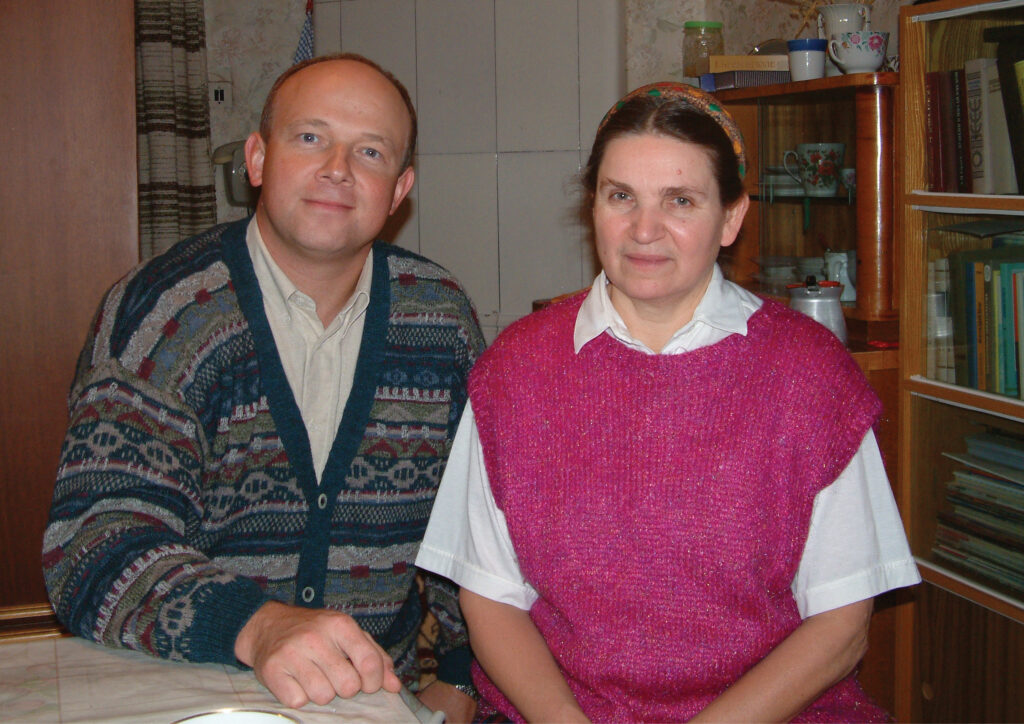
The hardest thing was being away from my family and not knowing whether they knew where I was or what had happened to me. I quickly broke down in tears when I thought of them, so I worked hard not to think about them because I didn’t want my cellmates to see me crying.
Holy, Holy, Holy
After a few weeks in that cell, God brought Revelation 4:8 to my mind: “The four living creatures … do not rest day or night, saying: ‘Holy, holy, holy, Lord God Almighty, who was and is and is to come!’” I remember thinking — and I believe it was from the Lord — that if those four living creatures could say those words, “holy, holy, holy,” throughout all of eternity, then surely I could manage to say them for one minute, or five minutes or an hour.
In my mind I began to repeat that verse over and over: “Holy, holy, holy, Lord God Almighty!”
As I recited the verse, I began to focus on specific attributes of God. “Holy, holy, holy is God the healer,” and I would pray for the healing of Christians who had been injured in attacks in Nigeria. “Holy, holy, holy is God who sets the captives free,” and I would pray for Christians in Eritrea who had been imprisoned for more than a decade. I began to focus on God’s holiness and power instead of on my own situation.
Then things in my prison cell changed for the worse.
My cellmates made it very clear that as a Christian, I was an infidel of little value. They began calling me “filthy rat” or “filthy pig.” At first I refused to answer. That’s not my name, I thought, and I won’t dignify it with a response. But when I didn’t answer, they hit me with a broom handle and forced me to stand in a corner of the cell for hours at a time. Then they began to punch me and kick me.
They also questioned me about the Christian work I was doing in Sudan. If they didn’t like my answer, they hit me. As they slapped and kicked me, I thought of how Jesus was beaten with wooden sticks by the Roman soldiers. One particular beating was so bad that I thought I had a broken rib; a 400-pound guy kicked me with his shoes on, so it was very painful.
Despite this physical abuse, I realized God was performing a miracle. I had peace! I could even think about my family and pray for them without breaking down in tears. God was with me!
My cellmates soon increased the pressure on me. One of them slowly sharpened the edge of a metal plate while threatening to slit my throat. They also attempted to torture me with “waterboarding” because, they said, the Czech Republic had cooperated with the United States in waterboarding Muslims. As they collected water to pour on my face and prepared to tie me up, a guard who had overheard their plans opened the cell door and moved me to another cell. I believe that guard was sent by the Lord to save my life that day.
Another Month in Prison
On the 10th of each month, which marked another month since my arrest, I struggled with discouragement and depression. “How long, O Lord, will You leave me here?” I asked. “How long will You keep me separated from Wanda and our children? How much more can I endure?”
God answered my questions on the 10th of April, 2016, by which time I had been moved from the NISS prison to a regular prison. That night, when 14 new prisoners were added to my already overcrowded cell, God distinctly led me to talk with these new prisoners and share my testimony with them.
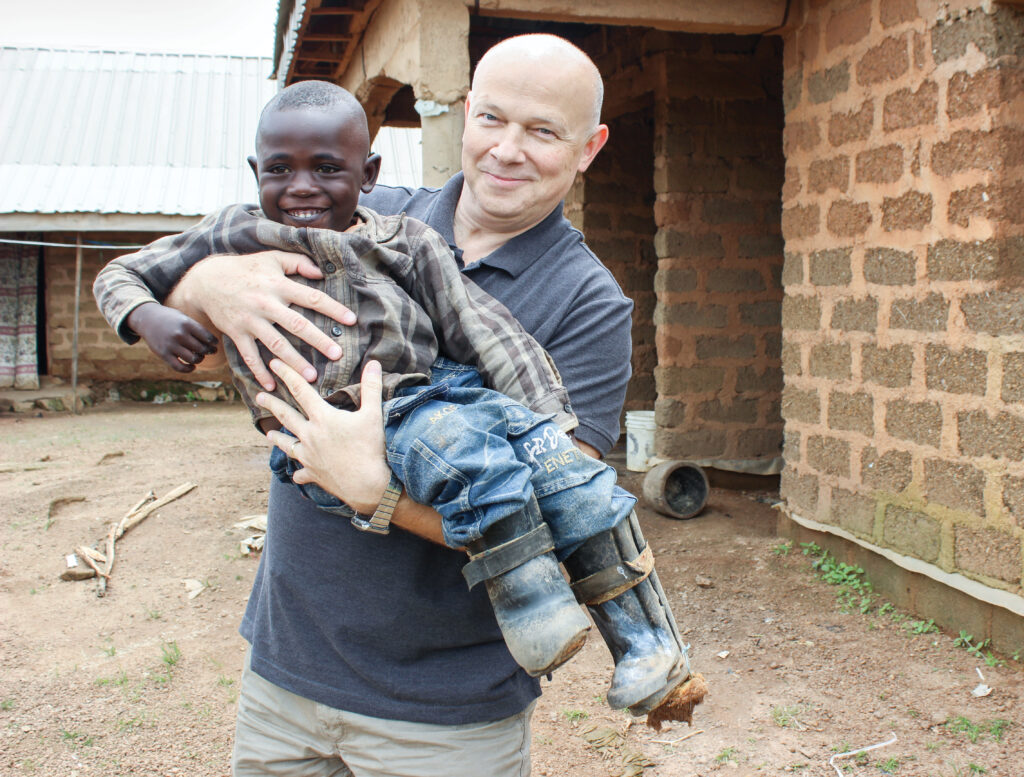
The new prisoners were from Eritrea, a country I had visited for VOM. They had been captured while passing through Sudan as they fled their oppressive homeland. After getting to know them a little, I shared my testimony and introduced them to the gospel. Several of the Eritreans listened closely, and two of them made a decision to follow Christ. The next morning, all 14 were transferred out of the prison and I never saw them again. But I’m confident that I’ll see at least two of them again in heaven.
The Lord had turned that 10th day of the month, normally a day of discouragement and depression, into a day of ministry and celebration. From that day onward, I dedicated my prison time to the Lord. “If You will allow me opportunities to share the gospel, I will stay here as long as You want!” I prayed.
I experienced a radical change of heart, no longer fretting about my trial and how long I would be in prison. In fact, I even stopped praying that I would be released from prison. I simply focused on the people God placed in my path each day and asked Him to use me to build His kingdom while I was in prison.
Later in April I received a visit from a Czech Republic embassy official, who brought me a much-appreciated Czech Bible. After almost five months without God’s Word, I was hungry! Finally I could dive into the Scriptures.
I could read my Bible only in the daytime, when natural light entered my cell, so I read it from 8 in the morning until about 4 in the afternoon every day. I had to read standing up, leaning against the prison bars so the light would fall across the pages. I was so hungry that I read the Bible from Genesis to Revelation in three weeks, just reading for hours each day.
As I came across different passages that God had brought to mind during my long months without a Bible, it was like finding a pearl or receiving a loving embrace from God. I scratched those special references into my cell wall so I could quickly return to verses like 1 Cor. 10:13 : “No temptation has overtaken you except such as is common to man; but God is faithful, who will not allow you to be tempted beyond what you are able, but with the temptation will also make the way of escape, that you may be able to bear it.”
Two Sudanese pastors, Kuwa Shamal and Hassan Abduraheem, were being tried with me. They were placed in a cell across from mine, so we would call out verses to each other across the hall.
“Read Romans 12:12!”
“Rejoicing in hope, patient in tribulation, continuing steadfastly in prayer.”
“We can rejoice today! We can be steadfast in prayer!”
Eventually, the three of us and another Sudanese man, who had served as my translator, were transferred to a prison where there was a Christian chapel. The Christians in that prison met almost daily, so the pastors and I had many opportunities to minister and study God’s Word together. What sweet fellowship it was!
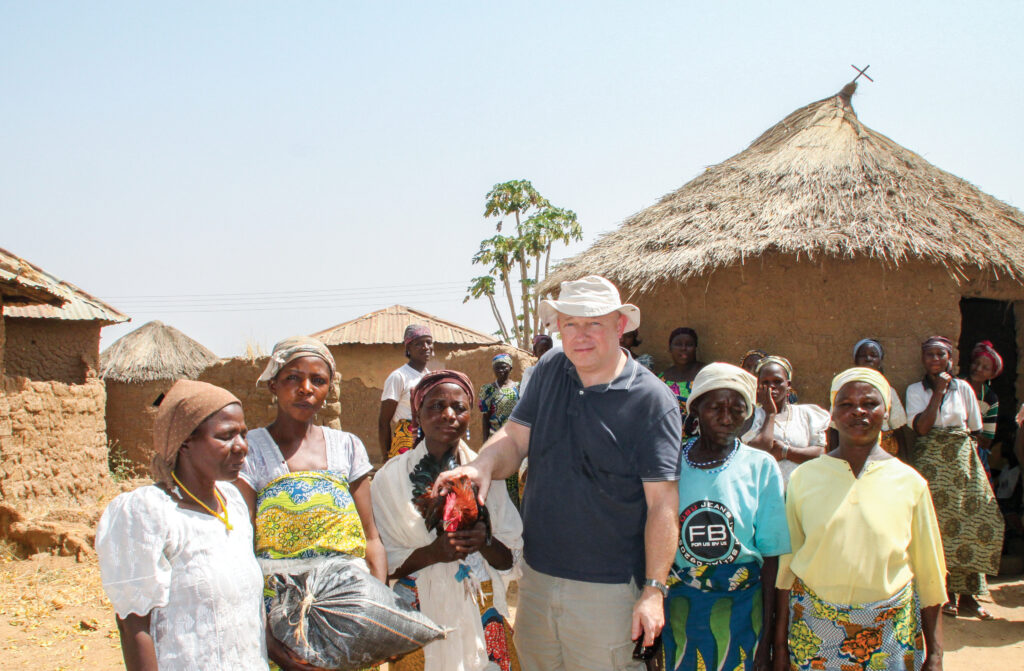
I worried that my Sudanese friends might view me as the cause of their imprisonment and separation from their families, but they quickly put my mind at ease. “This is God’s plan,” they said simply.
Our trial dragged on, month after month, and hearings occurred only once a week. We were loaded into the back of a truck and driven for one hour on hot, dusty roads to the courthouse in the center of Khartoum. Sometimes we would arrive as scheduled only to learn that the judge had canceled the day’s hearings or that there was no electricity in the courthouse. Then we would turn around and drive back to the prison.
Our Sudanese Christian brothers and sisters were a great encouragement at these hearings. Often they would gather outside the courthouse, risking their own arrest, to sing hymns as we were led into the courthouse. I will never forget Pastor Kuwa’s tears as he heard the hymns being sung in his tribal language outside the courthouse. We never felt alone. Not only God but also His body, the church, was standing boldly with us during our trial.
Some of the lawyers began to tell me that I would be going home soon, and prisoners began to ask for my clothing and blanket after hearing I would be leaving. But I didn’t believe it; I felt certain the court would find me guilty and I would remain in prison.
Life in Prison
On Jan. 29, 2017, we gathered in the courtroom to hear the verdict in our case.
My assumption was correct. I was found guilty on multiple charges and sentenced to life in prison, which under Sudanese law means 20 years. The additional convictions, however, added another four years to my sentence.
Pastor Hassan and my translator were found guilty of helping me commit espionage and sentenced to 12 years each. Pastor Kuwa, who wasn’t even in Sudan during my visit, had already been set free; it was pretty clear that he couldn’t have “aided and abetted” me in committing acts of espionage.
While I had fully expected to be found guilty, hearing the judge say “life in prison” hit me hard. Would I survive 20 more years in prison? Would I ever see my family again? What would they think when they heard those terrible words? But I also took comfort in the promise I had made to God. I had told Him that I was willing to stay in prison as long as He would use me. Clearly, He had a plan for me there.
“The Lord Has Done Great Things for Us”
After our conviction and sentencing, we were moved to Kober Prison, the preferred site for “political” prisoners.
On Feb. 23, 2017, I sat in the prison yard reading Psalm 126:
When the LORD brought back the captivity of Zion, We were like those who dream. Then our mouth was filled with laughter, And our tongue with singing. Then they said among the nations, “The LORD has done great things for them.” The LORD has done great things for us, And we are glad. …
Within seconds of finishing the Psalm, the prison commander approached me and said, “Petr, you are getting released today.”
I felt like I was dreaming! When my fellow prisoners heard the news, they rejoiced with me and shouted for joy. The release of a prisoner is always encouraging news in a prison, even though the others are eager to be released, too.
That was a moment of joy as the other prisoners hugged me and rejoiced over my release. In God’s faithfulness, He again had prepared me for the happy news a few seconds earlier in the Psalm.
The first letter I had written to my family had included these words of encouragement: “Please be strong in the Lord and trust Him that He is in control. He is the One that has keys for my cell.” After 445 days in prison, God used those keys to open my cell door.
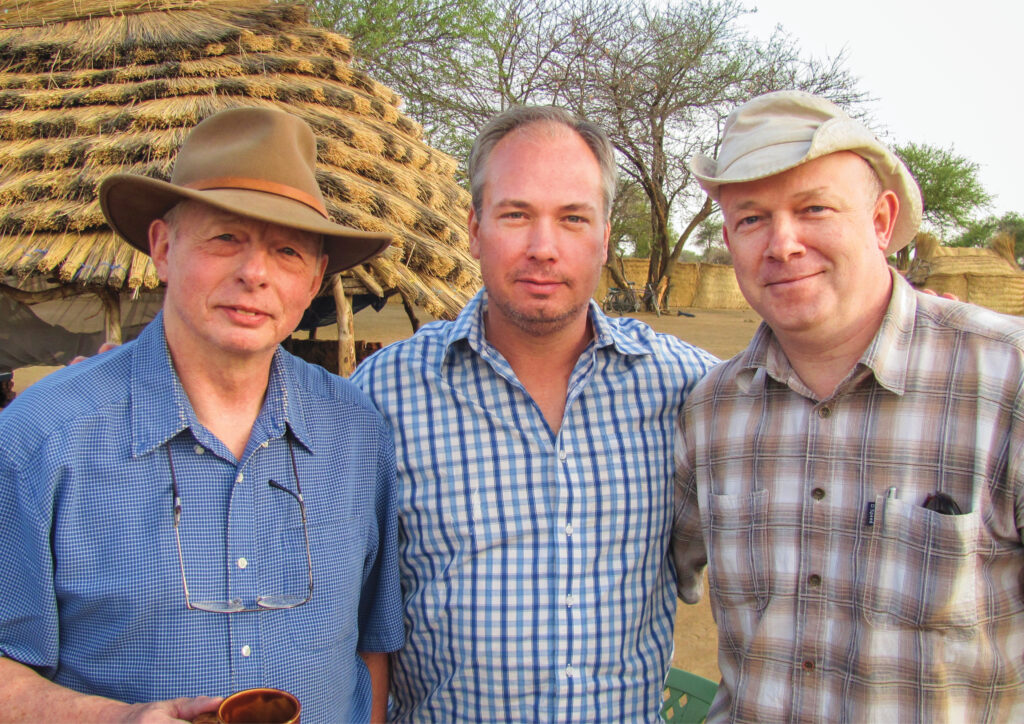
Three days later, I was sitting on an airplane next to the foreign minister of the Czech Republic, about to leave the airport where I had received that tap on the shoulder 14 months earlier.
I’m so thankful for those who prayed for me and my family during my time in prison, and I’m grateful to God that Pastor Hassan and my translator have also since been released. Returning to my home after being sentenced to life in prison has given me an interesting perspective. Although I gave my life to Christ when I was 15 years old, I think it has more meaning now when I say, “Lord, the rest of my life is Yours. You brought me out of prison. You saved me from a life sentence. The rest of my life is Yours; it is in Your hands. Here I am. I want to serve You for the rest of my life.”
This is my decision: I will seek the will of the Lord and do whatever He wants me to do until I go to meet Him one day.


 Guide
Guide